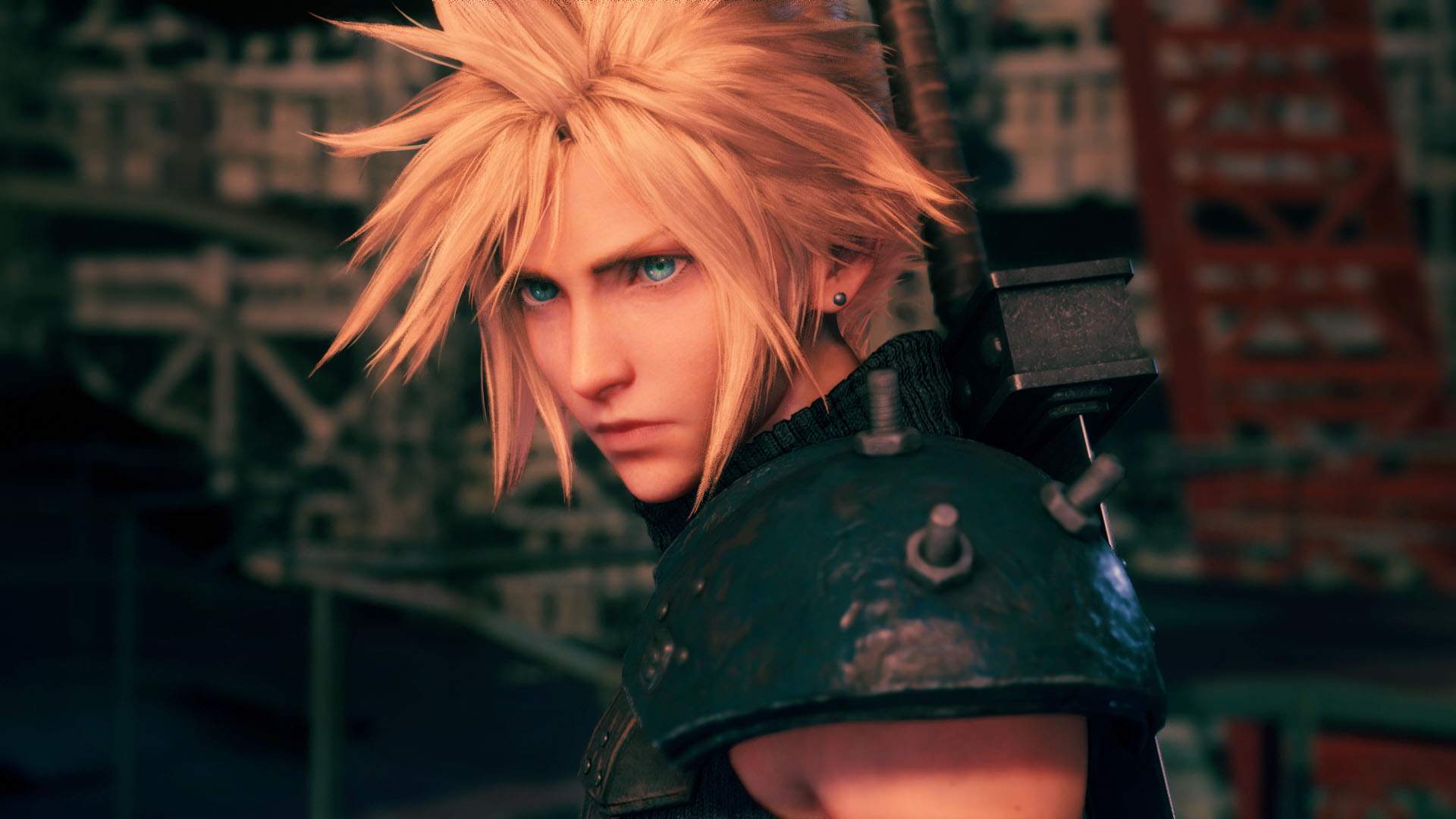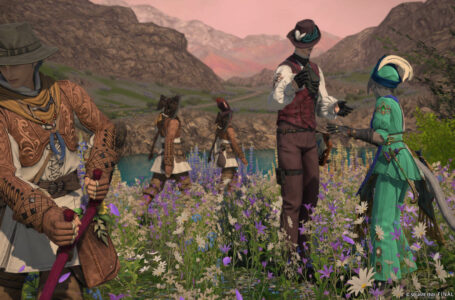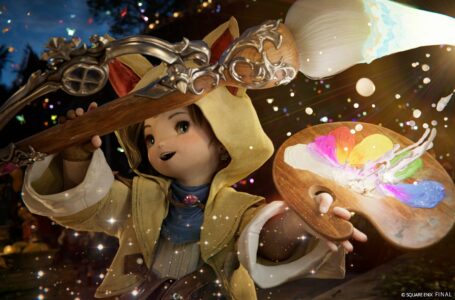Trope Talk: Amnesiacs in video games
As another topic of interest I’ll be introducing for potential monthly discussion, Trope Talk will involve us discussing the strengths and weaknesses of a particular trope. We’ll discuss why it sometimes does or does not work in the context of a specific title and see whether we agree or disagree on it being an enjoyable trope in video games overall.
The trope of amnesia in video games has a lot of categories. From waking up in a room such as 999 and Silent Hill 4 and game-play guided amnesia where the amnesia is addressed and used only in tutorials seen quite often in the Ace Attorney titles for blatant exposition are only a couple of examples of the types of amnesia in this medium. We’ll be discussing the ones I’m most familiar with in terms of better relaying important information on why the trope either helps build up the story or has a hand in failing the game’s entire experience. Each heading will be an example of a certain element of a video game’s amnesia usage. Please note that we will be discussing amnesia in main characters (MC) only.
Add to the discussion in the comments! Be mindful of spoilers whenever I discuss a particular game.
Introduction
Amnesia in video games is often detached from real amnesia. Amnesia in real life can be separated into two categories; Retrograde amnesia means the loss or inaccessibility of some long-term stored memory while anterograde amnesia damages the brain’s ability to form long-term memories in the future. Due to amnesia often being caused by brain damage, it can cause an awful lot of other damages, such as seizes or loss of language skills. It’s almost always un-fixable.
Compared to it in fiction it’s the complete opposite, with almost no side effects, is ultimately reversible and removes a select amount of information only. It’s overall a dramatization of something that is clinically detrimental with no turning back. Video games often always use the retrograde amnesia as implementing anterograde amnesia would make for one troublesome narration. Within fiction it makes for unexpected plot-lines due to it being so detached from reality and with no consistent usage within such formats so it can make for some good surprises or used for mere convenience. So, does it do a game’s story justice?
For the blank slate player insert

Fitting for this trope talk is my first example of an amnesiac MC to be a more of a con than a pro. In the otome game Amnesia, its main mystery and very reason for existing is the discovery of our heroine’s cause of her memory loss while hiding it from her love interests. There is mostly no sense of emergency or importance in her discovering the cause other than on one route (Shin’s). It instead gives the sole reason in making our heroine so bland, the blank slate trope so to speak. In other routes it’s the catalyst of improving an existing relationship (Kent) or as the successful push – quite literally – to claim her (Toma).
While the heroine’s situation does provide the main appeal of the title with the mystery, once it’s solved within one route it affects the heroine’s none existent personality so much as to damper the entire experience in the long run. Amnesia’s heroine is iconic for being one of the worst heroines of the genre for this reason alone because despite it being a legit reason for her being a blank slate for player self insert, it does the Heroine disservice in the end by making her so forgettable and never developed throughout the game (I have an understanding that she does do so in its sequels however). I didn’t want to say it but even the god awful, indecisive Fuka of Ozmafia! was more appealing.
The Fire Emblem series may be the worst offender of this however. Fire Emblem has received a lot of criticism for its main characters when they are player inserts, more often than not blank characters in both the inside and outside with either no voice or dialogue at all to express themselves and instead reinforce their none existing personalities. On top of this they often have little to no expression. While it’s understandable for the plot of Fire Emblem: Three Houses to have one of the most expressionless main characters I’ve ever seen (vessel is the key word here), Awakening’s usage of the amnesiac MC has been very polarizing. Despite this however I find it the most appealing MC out of every other player inserted character of the series due to how their amnesia was implemented unlike Amnesia’s Heroine.
Fire Emblem Fates used a heck of a lot of information dumping as soon as the story starts. It’s the complete opposite of how Fire Emblem Awakening handles the discovery of the amnesiac Robin that would understandably need information dumping and blatant exposition considering Robin’s amnesia. But Awakening instead held the hand of both Robin and us players as we both had no idea where we we are and its world. We both discovered important information at the same time as the story progresses and not immediately dumped onto us. The amnesia in Awakening did encourage character motivations, information concerning its world (that’s one very long history in fact), and had a hand in developing the personality of Robin since they become someone new without ever regaining their lost memories as seen in many support conversations where they are expressive and at times emotional.
For the source of power

But let’s go the opposite end then, shall we? On the topic of an RPG, the amnesiac trope is often used to hide the secret powers that are laying dormant in its main character until you keep levelling them up to trigger almighty power. This can be paralleled to Shounen manga/anime (Hunter x Hunter, Eureka Seven). When natural talent is extraordinary, often unbeknownst to the person they can suddenly release so much power as to overwhelm the enemy. In a JRPG, by starting at Level 1 it provides progression, growth and hard work in reaching your full potential, but for a character to be so powerful, they’re seen as special: extraordinary. The story, despite being set in most times a fantasy world is even further away from reality as we play a hero with exceptional, sudden strength that’s inhuman to the game’s own characters.
Amnesia happens to be a pretty popular trope within the RPG sphere for easier relaying of its massive world happenings and functions. It’s been prolific in the Final Fantasy series in fact. Final Fantasy VI’s Terra suffers from a form of mind control that wipes certain memories she holds, and Final Fantasy VII’s Cloud suffers from a multitude of memory disorders to hide his identity and origins. Both masks important information relevant to the world’s events and holds a certain amount of mystery which is arguably the main reason as to why amnesia is implemented in MC’s. Furthermore, in Terra’s case, the reveal of her origins and powers have a hand in developing her personality by forming bonds important to her, especially so with children. By the time she protects them from the boss Humbaba she has finally accepted her power and to use it for good. It’s both character building and motivating.
On the other hand, Utawarerumono is another JRPG that uses amnesia but actually unlike what we would expect. Haku, whose name he even forgot so was named by his finder, is not a strong or capable fighter but instead much like Fire Emblem’s player insert characters he is a strategist. Much like how we feel a fish out of water in a new world, Haku is the very same, flung into a whole new world he has no understanding of, crawling with monsters and with battle hardened animal hybrid children. Haku’s helplessness and unexpected heroism is a striking juxtaposition to what we would usually expect from such an MC. It even has a hand in once uncovering his origins, it increases the magnitude of this fantastical other world. Its amnesia is fully realized and heightens the tension and appeal of the overarching world and story effectively. It’s personally the best amnesia implementation within the JRPG genre I have encountered.
For the motivation

Such aspects not only reinforce character motivations but also overarching themes. As I have already delved into the works of Kotaro Uchikoshi, I’ll briefly discuss once more his effective way of writing up and pulling off plot twists by using the amnesia trope. In Ever 17, the existence of the Kid hides the amnesia, with an eventual revelation of there being two Kids that exist throughout the storyline. Additionally, in Remember 11 its protagonist Satoru suffers from partial identity amnesia with his past self being the very cause of the body swap of its two main characters, the phenomenon concerning the game’s main mystery. Both examples add not only tension to the mysteries unsolvable until the eventual reveals but such plot twists play around with the possibilities of using amnesia as an effective addition to the story without sounding convoluted.
In his latest efforts, AI: The Somnium Files excels with the same loose usage of amnesia in its protagonist. With very brief hints to the final revelation of is protagonist’s amnesia, as a visual novel it not only excels in the usage of branching plot lines but its reliance on amnesia reinforces the importance of multiple play throughs to figure out the puzzle. And within this game, it’s not the main focus, with the serial killings as the major mystery that ends up nicely answering the question of MC Date’s identity by the end point when our minds are preoccupied on the murders.
However there are two other video games that take the opposite approach, disregarding the overall idea that an amnesiac MC has to be bothered by their current condition. Gravity Rush does star a lead who also suffers from amnesia, but not only is it of no importance to Kat throughout the game’s run time, it’s therefor not of any importance to us on finding out more on her amnesia. Her origins are instead a focus in its sequel, making the first title an oddity concerning the existence of a MC that has amnesia but does not act on it at all. In Reckoning: Kingdoms of Amalur it is also a fact that our MC has amnesia, but once again, is unbothered by it probably due to their continuous resurrections and finding themselves in a different body every time. Once more this is not further explained or even necessary to do so, instead all for setting up introductions to the game’s worlds, characters and story.
For the convenience

Speaking of convenience, the aspect of a game using amnesia for the main character can also mean for easy implementation of tutorials and beginning story segments as we learn about the world and characters alongside our MC’s own discovery of new information and understanding. The Rune Factory series actually uses this trope as an ongoing gag for its expectancy with its main character introduction in almost every single game of the series. Currently only one character(s) in Rune Factory Oceans is not affected by amnesia due to sharing their body with their sibling, making such implementation difficult to pull off without making the story challenging to present.
This is often deemed as lazy writing, but as evident with Rune Factory, it can become an endearing staple of a series. As a one off instead let’s look at Vagrant Story. Its main character, Ashley Riot, despite being an amnesiac, is still able to carry out his mission and abilities as a spy just like before it struck. His amnesia reinforces his basic stats and levels considering this is another JRPG and his memories do come back during the course of the game, but his skills appear to be undamaged during particular scenes. It’s once again a convenience as Ashley can remember certain skills or important information but at other times forgets other details until he has to remember them.
Conclusion
Amnesia can mean for a lot of hit and misses depending on the context used. As I’ve said throughout amnesia is easy to implement and is often an excuse for a lot of information dumping or as a way to introduce the player to the world without much effort needed. But what about when it’s had some thought put behind it? Even if it’s not completely well executed it’s at the very least more bearable and accepting as something to spice up the formula by being played around with. The amnesiac MC has been tried and tried again with varying degrees of success and in fact feels very outdated, but it’s not all bad as I personally mostly enjoy it unless it is truly, unforgivably lazy.
It’s not like a Mary Sue case, is it? Maybe next time.
Join The Discussion
Rice Digital Discord
Rice Digital Twitter
Rice Digital Facebook
Or write us a letter for the Rice Digital Friday Letters Page by clicking here!
Disclosure: Some links in this article may be affiliate links, which means we may earn a small commission if you make a purchase after clicking on them. This is at no additional cost to you and helps support Rice Digital!
- Sigh of the Abyss: Shadow Bonds – Prologue Review - October 7, 2023
- Is She The Wolf? is wickedly addicting TV - October 6, 2023
- The steady consumption of Slow Damage - October 5, 2023





